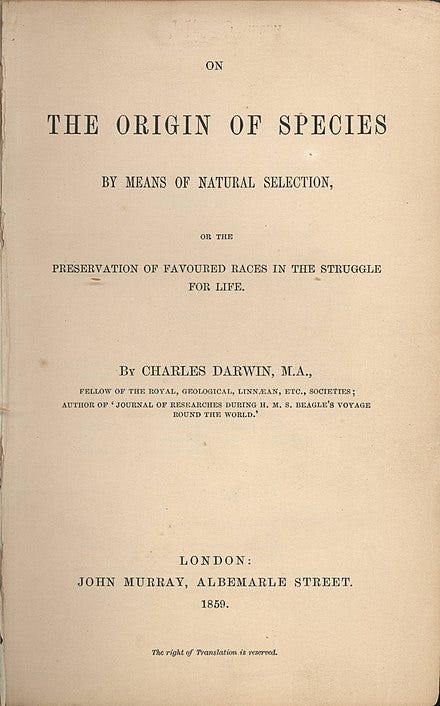Today in 1859, Charles Darwin published The Origin of Species by Means of Natural Selection or the Preservation of Favoured Races in the Struggle for Life.
The book’s explanation of evolution as adaptation through natural selection has become the unifying concept of the life sciences. Liah Greenfeld:
Fortunately for students of humanity, the psycho-physical problem was resolved in 1859 by Charles Darwin. This was a colossal problem for biology as well: Life, too, could be approached scientifically only through physics, but it proved impossible to explain its regularities through physical laws. Thus, the science of biology did not develop: our understanding of living phenomena by 1859 had hardly advanced beyond Aristotle.
Western philosophy – our fundamental vision of reality – did not allow for the autonomous science of biology. A new ontology was needed, which Darwin provided in The Origins of Species. By demonstrating a form of comprehensive causality operative in life that had nothing to do with the laws of physics but was logically consistent with them, Darwin established life as an autonomous, empirically accessible reality, dependent for its existence on material elements, but irreducible to them and, as concerns causal mechanisms, not material. Thus he transcended the dualist, spiritual-material, ontological vision and liberated empirical science from the hold of materialist philosophy.




